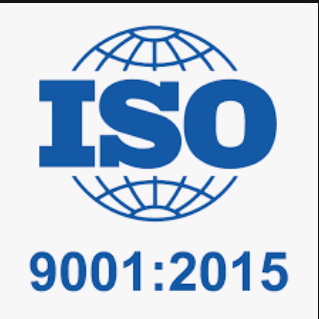پێگەی مێژوو لە لێکۆڵینەوەکانی ئایندەناسییدا
Authors:
- HARDI MAHDI MIKA ALI
- ORCID:
Future, Future studies, History of future, Prediction
Abstract:
The role of history in future studies
History is one of the fields of human research and has a strong relationship with politics, political studies and future studies. Future studies are considered a new field in effective and developed scientific research and have an essential role in politics since they influence each other. Future research fields are enhanced by taking advantage of other human and scientific research fields or using interdisciplinary and multidisciplinary methods. One of the fields that future researchers cannot disregard is historical research. This research focused on the two different directions: the fields of future research and history, i.e., past events, on the one hand, their future and scenarios on the other. The research seeks to answer some main questions: What is the common ground and relationship between history as a field of human research with future research? What is the function and purpose of both fields? What are their common keywords? Where will history assist the science of future research? The importance of the research is that working on the relationship between history and future science will keep history away from the past. It also makes future studies more realistic in identifying and cooperating with politics, political reform, management, and other aspects of society and choosing a better future among futures ahead of any society and individual. Moreover, historical research and academic centers in Kurdistan have been less likely to apply history as a science to understand the future. The research aims to find common ground and the effective relationships between the two fields of futures and history and link them by analyzing their content, tasks and methods. The research methodology is descriptive-analysis and has benefited from historical and comparative methods to explain the definitions, emergence, and common grounds for both research's variables.
References:
کتێب:
١.استنفورد, مایکل. ١٣٩٢. درآمدی بر تاریخ پژوهی. [ترجمە] مسعود صادقی. تهران : انتشارات سمت, ١٣٩٢.
٢. البیهقی, علی بن زید (ابن فندق). ١٣٦١. تاریخ بیهق. تهران : ب.ا, ١٣٦١.
٣. السخاوی, شمس الدین. ١٩٨٦. الاعلان بالتوبیخ لمن ذم اهل التاریخ. [تحقیق] فرانز روزنتال. [ترجمە] صالح احمد العلی. بیروت : موسسة الرسالة, ١٩٨٦.
٤. العابدینی, رمضان زین. ١٣٨٨. تاریخ نگاران و مکتبهای تاریخ نگاری در اسلام. تهران : انتشارات چاپخش, ١٣٨٨.
٥. انور حسین عبدالرحمن و عدنان حقی شهاب زنکنة. ٢٠٠٧. الانماط المنهجیة و تطبیقاتها فی العلوم الانسانیة و التطبیقیة. بغداد : ب.م, ٢٠٠٧.
٦. بدلیسی, شرفخان. ١٣٧٧. شرفنامە. [تحقیق] ولادیمیر ولییامینوف. تهران : نشر اساطیر, ١٣٧٧.
٧. توینبی، آرنولد. ١٣٨٧. گزیدە آثار توینبی. گردآوری: تاملین, فردریک. تهران : انتشارات امیرکبیر, ١٣٨٧.
٨. حضرتی, حسن. ١٣٩١. پژوهش در تاریخ شناسی. تهران : پژوهشکدە امام خمینی, ١٣٩١.
٩. ابن خلدون, ولی الدین عبدالرحمن بن محمد. ٢٠٠٤. مقدمة ابن خلدون. [تحقیق] عبداللە محمد الدرویش. دمشق : دار یعرب, ٢٠٠٤. بەرگی١.
٩. عثمان, عید عبدالغنی. ٢٠٢٠. تعلیم تاریخ المستقبل و تکوین الوعی المستقبلی. التربیە الحدیثة New Education.[بڵاوکردنەوە] ١٠ ١ ٢٠٢٠. [بەردەست ١٥ ٢ ٢٠٢١.] http://bit.ly/38lCtDz.
١٠. کالینگود, رابین جورج. ١٣٨٩. مفهوم کلی تاریخ. [ترجمە] علی اکبر مهدیان. تهران : انتشارات کتاب آمە, ١٣٨٩.
١١. مسکویە, احمد بن علی. ١٣٧٦. تجارب الامم. [ترجمە] ابوالقاسم امامی و علی نقی منزوی. تهران : انتشارات سروش, ١٣٧٦.
١٢. ملائی توانی, علیرضا. ١٣٨٧. درآمدی بر روش پژوهش در تاریخ. تهران : نشر نی, ١٣٨٧.
١٣. هاشم یحیی الملاح و آخرون. ١٩٨٨. دراسات فی فلسفة التاریخ. طبعة الاولی. موصل : دار الکتب للطباعة و النشر, ١٩٨٨.
١٤. همدانی, رشیدالدین فضل اللە. ١٣٨٦. جامع التواریخ، تاریخ آل سلجوق. [تحقیق] محمد روشن. تهران : انتشارات میراث مکتوب, ١٣٨٦.
- بڵاوکراوە:
١٦. رقابی, حیدر. ١٣٦٢. آیندە بحثی در فلسفە تاریخ. تهران : دانشگاه تهران, پاییز ١٣٦٢, دانشکدە ادبیات و علوم انسانی دانشگاه تاریخ, ژمارەکانی ١و٢و٣و٤, صص ١٠١-١٠٤.
١٧. آرزو بخشندە، رمضان جهانیان. ١٣٩٧. آیندەپژوهی. تهران : تهران, شهریور ١٣٩٧, دوماهنامە مطالعات کاربردی در علوم مدیریت و توسعە, صص ٦٥-٧١.
١٨. اختیار, مهدی احمدی. ١٣٩٣. آیندەپژوهی در تاریخ. تهران : www.Sid.ir,١٣٩٣. سومین همایش ملی آیندەپژوهی. شمارە3.
١٩. اکرمی, موسی. ١٣٧٦. آیندەشناسی و آیندەنگری. تهران : بێ ناو, تابستان و پاییز ١٣٧٦, رهیافت, شمارە ١٦, صص 68-75.
٢٠. میکە, هەردی مەهدی. ٢٠٠٤. دیدی ئارنۆڵد توینبی بۆ گەشەکردن و داڕمانی شارستانیەتەکان. سلێمانی : ٢٠٠٤, هەژان, ژمارە١٣, لاپەڕەکان ١٥٩-١٧٠.
٢١. واسعی, سیدعلیرضا. ١٣٨٨.غایتمندی تاریخ. تهران: پاییز ١٣٨٨, تاریخ اسلام, ژمارە٣، سال دهم مسلسل ٣٩, صص٤٧-٧٩.
٢٢. گۆران, یوسف. ٢٠٢٠. لێکۆڵینەوەکانی ئایندەناسی پوختەیەکی تیۆری. سلێمانی: سەنتەری لێکۆڵینەوەی ئایندەیی, ١ ٥ ٢٠٢٠, ئایندەناسی, ژمارە ١, لاپەڕەکان ١٠-٢٩.
٢٣. کروچە, بندتو. ١٣٨١. مباحثی در فلسفە تاریخ: تاریخ و وقایع نگاری. تهران : تهران, بهمن و اسفند ١٣٨١, بخارا, شمارە٢٨, صص ٧-١٧.
سایتەکان:
٢٤. مدیریت پژوهش مرکز طرح،٢٠٢١. تعاريف و مفاهيم آينده ¬پژوهي. برنامه و ارزیابی سیما. [نشر] ٢٠٢١. [دسترس: ٥ ٣ ٢٠٢١.] http://bit.ly/3sT2l1I .
٢٥. مرکز مطالعات آیندەپژوهی و توسعە پایدار. ١٣٩١ . تعریف آیندەپژوهی. [نشر] ١٥ ٨ ١٣٩١. [دسترس: ٥ ٣ ٢٠٢١.] https://ayandehpajoohi.blog.ir/post/16

